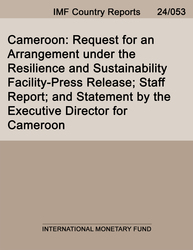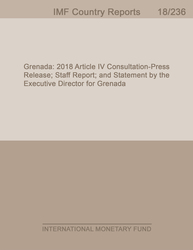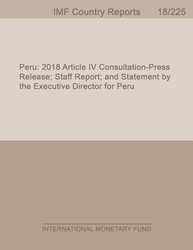
Cameroon: Request for an Arrangement under the Resilience and Sustainability Facility-Press Release; Staff Report; and Statement by the Executive Director for Cameroon
Request for an Arrangement under the Resilience and Sustainability Facility
READ MORE...
Volume/Issue:
Volume 2024
Issue 053
Publication date: February 2024
ISBN: 9798400268441
$20.00
Add to Cart by clicking price of the language and format you'd like to purchase
Available Languages and Formats
| English | |||
| French |
Prices in red indicate formats that are not yet available but are forthcoming.
Topics covered in this book
This title contains information about the following subjects.
Click on a subject if you would like to see other titles with the same subjects.
Exports and Imports , Money and Monetary Policy , Public Finance , International - Economics , Environmental Economics , Natural Disasters , Public Policy- Environmental Policy , RSF arrangement , RSF reform package , RSF Reform Measures , IMF Resilience and Sustainability Facility , RSF request , Climate change , Climate policy , Global
Also of interest
Summary
Climate change presents substantial risks for Cameroon. In addition to being
the largest CEMAC economy with ample economic potential and abundant natural
resources, Cameroon covers large areas of the Congo Basin rainforest, the second
largest in the world. At the same time, the country is a fragile and conflict affected state
(FCS), with a range of fragilities, including a high vulnerability to climate change.
Climate risks are intensifying in Cameroon, with temperatures progressively rising, and a
projected increase in days with heavy precipitation and higher frequency of extreme
weather events, such as droughts, landslides, and floods. Climate change poses an
imminent threat to livelihoods and could result in significant output losses, while
worsening food insecurity and conflicts, and exacerbating poverty, inequality, and
population displacements. This underscores the need to strengthen the country’s
preparedness and resilience to ensure that climate change impact does not jeopardize
human capital accumulation or inclusive growth.
Copyright © 2010 - 2026
Powered by:
AIDC



